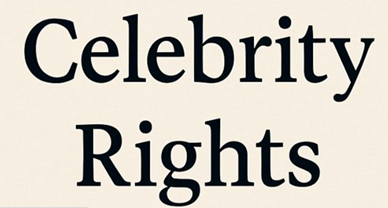Criminal Liabilities And Remedies For Copyright Infringement
A careful step towards ensuring the acquisition of prosperity gained through your work is to copyright it. Copyright infringement causes harm to the growth and recognition of the involved entity and thus the government of copyright laws under the Copyright Act, of 1957 act as a huge boon for the original creator of any artistic, literary, dramatic or musical work. If infringement is faced, a copyright proprietor can avail many remedies. Some of them include the infringers facing criminal charges. They are stated under chapter 13 of the act. In this blog, all such liabilities are going to be explained.

The wide proliferation of companies and other entities claiming copyright for their curated work leads to more secure protection of their Intellectual Property Rights Copyright thus is a form of IPR as has been already established which protects the works created by original authors/ composers/ performers.
The copyright laws in India are governed under the Copyright Act, 1957. They provide for the protection of such rights against the infringement or violation of works that may be literary, dramatic, musical, or artistic. Registration of your work under copyright may result in a lot of legal perks and benefits as well as the protection of various aspects such as goodwill, profit growth, and much more.
Copyright violation is a cognizable offense which means that an infringer may face both civil as well as criminal charges. If infringement is faced by a copyright proprietor, they can make use of criminal, civil, and administrative remedies as provided by the Copyright Act.
InM/S Knit Pro International vs The State of NCT of Delhi on 20 May 2022 the two-judge bench comprising of M.R. Shah, B.V. Nagarathna, in the Supreme Court ruled that copyright infringement is a cognizable and non-bailable offense under Section 63 In of the Copyright act. The offense is cognizable if it is punished by imprisonment for three years or more but not more than seven years, according to the bench.
Some of the criminal liabilities as mentioned in the sections 63-70 of the copyright act are as follows:
- When copyright is infringed– According to section 63, an infringer must serve a minimum of six months and a maximum of three years in prison, as well as pay a fine. A fine of not less than 50,000 rupees but not more than two lakh rupees is imposed. It was also noted that if the copyright was not infringed for commercial objectives, the court would dismiss the case as may be necessary should give the appropriate and unique grounds in the judgment imprisonment for up to 6 months or a fine.
Additionally, under section 63 A if a person commits this act for the second time, will face imprisonment for 1-3 years and will pay a fine between Rs. 1,00,000 to Rs. 2,00,000.
- Protection in case of technological measures – Section 65 states that any individual that, intending to infringe on any of the rights conferred by this Act, and bypasses effective technical means used to protect such rights will be punished by imprisonment for up to two years and a fine.
Section 63 B mentions that if a person makes an infringing copy of a computer programme despite being aware of the same, may be imprisoned for 7 days to 3 years and be fined Rs. 50,000 to 2 lakhs.
- In case of possessing plates to attempt making infringing copies– Under section 65 if a person tries to make copies, shall be imprisoned for a period which may extend up to 2 years and will also be liable to pay a fine.
If someone distributes, imports for distribution, broadcasts, or communicates to the public, without authority, copies of any work or performance, knowing that electronic rights management information has been removed or altered without authority, they are subject to a two-year prison sentence and a fine according to section 65 B
The courts can order the disposal of such copies under Section 66.
- When false entries in the register are made– A fine or imprisonment of 1 year or both will be imposed on an individual if they make a false entry in the Registers of Copyright or attempt to have writing prepared that fraudulently claims to be a duplicate of any entry in the register according to Section 67. Similar punishment will be faced by an individual in an attempt to misrepresent certain details in the register to deceive an authority stated by section 68.
- When the distribution of content is held without the mention of respective particulars– Section 52 A of the act states some important particulars which need to be portrayed on the container of the same. According to section 68 A, if any person publishes a recording in contravention to the provisions provided in the Section 52 A will be punished with an appropriate fine and imprisonment of a period which may extend to 3 years.
In the State Of Andhra Pradesh vs Nagoti Venkataramana on 20 August 1996, The Supreme court held that the infringement falls under Section 51[2] (ii) or Section 52-A of the Act, based on the findings of the courts that the respondent was exhibiting cinematograph films in his Video City for hire or for sale of cassettes to the public that did not contain the particulars envisaged under Section 52-A of the Act. Hence it imposed a fine of Rs 10,000 on the respondent.
- Offenses to be faced by companies – Under section 69 of the Copyright Act, when a company commits an offense under this Act, every person who was in charge of the conduct of the company’s business at the time the offense was committed, as well as the company, shall be deemed guilty of the offense and liable to be prosecuted and appropriately punished
If a person establishes that the offense was committed without their knowledge or that he exerted all reasonable care to avoid the conduct of such offense, nothing in this sub-section shall render him subject to any penalty.
There are no remedies available to the proprietor of a work connected to architecture if it is infringed upon. As a result, the work’s owner is unable to seek compensation in terms of injunctions, orders for demolition, or any other actions.
However, if a person claiming to be the owner of the work makes a circular or advertisement, or threatens another person with legal action, a declaratory suit can be filed against that person then an injunction can be filed and damages can be claimed in case any loss is suffered due to said threats.
Conclusion- The varied criminal liabilities and remedies mentioned above prove the absolute importance of copyright and the vast methods by which protection against copyright infringement can be undertaken. The Copyright Act 1957 thus covers various provisions against contingencies in which violation can occur and all kinds of potential legal issues are remedied in case of the emergence of any.
Author: Gurveen Kaur – a intern at IP And Legal Filings, in case of any queries please write back us via email at support@ipandlegalfilings.com.



